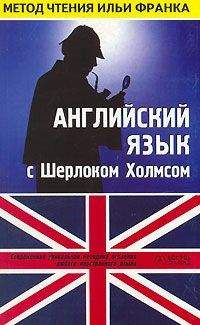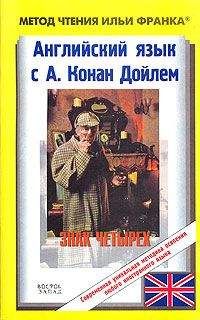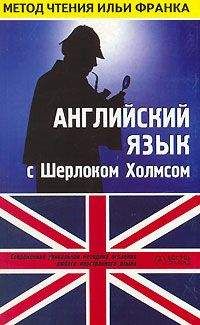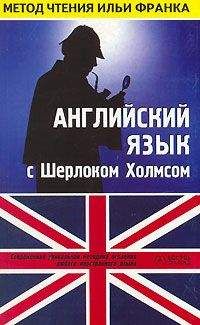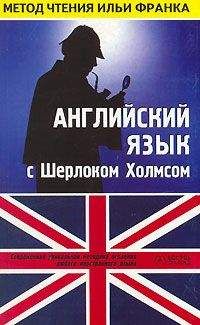fraudulent [ˈfrɔ:djulǝnt], coincided [ˌkǝuɪnˈsaɪdɪd], routine [ru:ˈti:n]
“A fraudulent imitation, Watson, though I should hardly dare to hint as much to our specialist. It is a very easy complaint to imitate. I have done it myself.”
“And then?”
“By the purest chance Blessington was out on each occasion. Their reason for choosing so unusual an hour for a consultation was obviously to insure that there should be no other patient in the waiting-room. It just happened, however, that this hour coincided with Blessington’s constitutional, which seems to show that they were not very well acquainted with his daily routine. Of course, if they had been merely after plunder they would at least have made some attempt to search for it.
“Besides, I can read in a man’s eye (кроме того, я могу прочитать по глазам) when it is his own skin that he is frightened for (когда человек боится за собственную шкуру). It is inconceivable that this fellow could have made two such vindictive enemies as these appear to be without knowing of it (/просто/ невозможно, чтобы этот субъект нажил себе таких мстительных врагов, не зная об этом). I hold it, therefore, to be certain that he does know who these men are (поэтому я считаю, что он наверняка знает, кто эти люди), and that for reasons of his own he suppresses it (и по каким-то своим причинам это скрывает; to suppress — подавлять, сдерживать; скрывать, замалчивать /правду и т. п./). It is just possible that to-morrow may find him in a more communicative mood (вполне возможно, что завтра мы найдем его в более общительном настроении).”
“Is there not one alternative (а нет ли другого варианта = версии),” I suggested (предположил я), “grotesquely improbably, no doubt, but still just conceivable (несомненно, неправдоподобной до абсурда, но все-таки возможной)? Might the whole story of the cataleptic Russian and his son be a concoction of Dr. Trevelyan’s (что, если вся эта история о каталептическом русском и его сыне — выдумка доктора Тревельяна), who has, for his own purposes, been in Blessington’s rooms (который — по каким-то своим причинам — побывал в комнате Блессингтона)?”
inconceivable [ˌɪnkǝnˈsi:vǝbl], vindictive [vɪnˈdɪktɪv], concoction [kǝnˈkɔkʃ(ǝ)n]
“Besides, I can read in a man’s eye when it is his own skin that he is frightened for. It is inconceivable that this fellow could have made two such vindictive enemies as these appear to be without knowing of it. I hold it, therefore, to be certain that he does know who these men are, and that for reasons of his own he suppresses it. It is just possible that to-morrow may find him in a more communicative mood.”
“Is there not one alternative,” I suggested, “grotesquely improbably, no doubt, but still just conceivable? Might the whole story of the cataleptic Russian and his son be a concoction of Dr. Trevelyan’s, who has, for his own purposes, been in Blessington’s rooms?”
“I saw in the gaslight that Holmes wore an amused smile at this brilliant departure of mine (в свете газового фонаря я увидел, что Холмс весело улыбается моему блестящему умозаключению; to wear — носить /одежду/; иметь вид: to wear a troubled look — иметь встревоженный вид; to wear a sad smile — печально улыбаться; departure — отъезд, уход; отправная точка).
“My dear fellow (дорогой мой),” said he, “it was one of the first solutions which occurred to me (это было одним из первых объяснений, пришедших мне в голову), but I was soon able to corroborate the doctor’s tale (но вскоре мне удалось подтвердить рассказ доктора). This young man has left prints upon the stair-carpet (этот молодой человек /сын русского дворянина/ оставил следы на лестничном ковре) which made it quite superfluous for me to ask to see those (что сделало совершенно излишним просить показать те /следы/) which he had made in the room (которые он оставил в комнате). When I tell you that his shoes were square-toed instead of being pointed like Blessington’s (если я скажу вам, что его ботинки были с квадратными носками, а не с заостренным мыском, как у Блессингтона; square-toed — тупоносый; с тупыми широкими квадратными носками /об обуви/), and were quite an inch and a third longer than the doctor’s (и на дюйм с третью длиннее, чем ботинки доктора), you will acknowledge that there can be no doubt as to his individuality (вы признаете, что в отношении его личности/индивидуальности = в том, что это был другой человек сомнений нет). But we may sleep on it now, for I shall be surprised (однако можем отложить решение этого вопроса до завтра: «можем спать сейчас на этом», так как я буду удивлен) if we do not hear something further from Brook Street in the morning (если утром мы не получим новых известий с Брук-стрит: «не услышим нечто дальше»; further — дальнейший, продолжающийся; добавочный; сверх того, более того).”
corroborate [kǝˈrɔbǝreɪt], superfluous [s(j)u:ˈpǝ:fluǝs], acknowledge [ǝkˈnɔlɪʤ]
“I saw in the gaslight that Holmes wore an amused smile at this brilliant departure of mine.
“My dear fellow,” said he, “it was one of the first solutions which occurred to me, but I was soon able to corroborate the doctor’s tale. This young man has left prints upon the stair-carpet which made it quite superfluous for me to ask to see those which he had made in the room. When I tell you that his shoes were square-toed instead of being pointed like Blessington’s, and were quite an inch and a third longer than the doctor’s, you will acknowledge that there can be no doubt as to his individuality. But we may sleep on it now, for I shall be surprised if we do not hear something further from Brook Street in the morning.”
Sherlock Holmes’s prophecy was soon fulfilled (предсказание Холмса сбылось; to fulfil — выполнять; делать, исполнять, осуществлять, совершать), and in a dramatic fashion (и /весьма/ драматичным образом). At half-past seven next morning (на следующее утро, в половине восьмого), in the first glimmer of daylight (в первых тусклых солнечных лучах), I found him standing by my bedside in his dressing-gown (я увидел, что Холмс в халате стоит у моей кровати).
“There’s a brougham waiting for us, Watson (нас ждет экипаж, Ватсон),” said he.
“What’s the matter, then (а что случилось)?”
“The Brook Street business (дело, /связанное/ с Брук-стрит).”
“Any fresh news (есть свежие новости)?”
“Tragic, but ambiguous (печальные, но неоднозначные),” said he, pulling up the blind (сказал он, поднимая штору). “Look at this — a sheet from a note-book (взгляните на это — листок из записной книжки), with ‘For God’s sake come at once — P. T. («Ради Бога, приезжайте немедленно. П. Т.»),’ scrawled upon it in pencil (наспех написано на нем карандашом; to scrawl — писать наспех; писать неразборчиво). Our friend, the doctor, was hard put to it when he wrote this (наш друг, доктор, находился в трудном положении, когда писал это; to be hard put to it — быть в весьма затруднительном положении). Come along, my dear fellow, for it’s an urgent call (идемте, мой дорогой, так как это срочный вызов).”
prophecy [ˈprɔfɪsɪ], gown [ɡaun], ambiguous [æmˈbɪɡjuǝs], urgent [ˈǝ:ʤ(ǝ)nt]
Sherlock Holmes’s prophecy was soon fulfilled, and in a dramatic fashion. At half-past seven next morning, in the first glimmer of daylight, I found him standing by my bedside in his dressing-gown.
“There’s a brougham waiting for us, Watson,” said he.
“What’s the matter, then?”
“The Brook Street business.”
“Any fresh news?”
“Tragic, but ambiguous,” said he, pulling up the blind. “Look at this — a sheet from a note‑book, with ‘For God’s sake come at once — P. T.,’ scrawled upon it in pencil. Our friend, the doctor, was hard put to it when he wrote this. Come along, my dear fellow, for it’s an urgent call.”
In a quarter of an hour or so we were back at the physician’s house (примерно через четверть часа мы снова были в доме доктора). He came running out to meet us with a face of horror (он выбежал нам навстречу с лицом, /полным/ ужаса).
“Oh, such a business (о, тут такое дело)!” he cried, with his hands to his temples (воскликнул он, сжимая пальцами виски).
“What then (что такое)?”
“Blessington has committed suicide (Блессингтон совершил самоубийство)!”
Holmes whistled (Холмс присвистнул).
“Yes, he hanged himself during the night (да-да, повесился ночью).”
We had entered, and the doctor had preceded us into what was evidently his waiting-room (вы вошли, и доктор провел нас в /комнату/, очевидно, бывшую его приемной; to precede — предшествовать; идти впереди).
“I really hardly know what I am doing (я с трудом понимаю, что делаю),” he cried. “The police are already upstairs (полиция уже наверху). It has shaken me most dreadfully (это потрясло меня совершенно ужасно; to shake — трясти/сь/; сотрясать/ся/; потрясать; to shake-shook-shaken).”
physician [fɪˈzɪʃ(ǝ)n], preceded [prɪˈsi:dɪd], police [pǝˈli:s]
In a quarter of an hour or so we were back at the physician’s house. He came running out to meet us with a face of horror.
“Oh, such a business!” he cried, with his hands to his temples.
“What then?”
“Blessington has committed suicide!”
Holmes whistled.
“Yes, he hanged himself during the night.”
We had entered, and the doctor had preceded us into what was evidently his waiting-room.
“I really hardly know what I am doing,” he cried. “The police are already upstairs. It has shaken me most dreadfully.”
“When did you find it out (когда вы это обнаружили)?”
“He has a cup of tea taken in to him early every morning (рано утром ему подают чай). When the maid entered, about seven (когда горничная вошла /к нему/, около семи), there the unfortunate fellow was hanging in the middle of the room (бедняга болтался /в петле/ посреди комнаты). He had tied his cord to the hook (он привязал веревку к крюку) on which the heavy lamp used to hang (на котором раньше висела тяжелая лампа), and he had jumped off from the top of the very box (и спрыгнул с той самой коробки) that he showed us yesterday (которую показывал нам вчера).”
Holmes stood for a moment in deep thought (с минуту Холмс стоял в глубокой задумчивости).
“With your permission (с вашего позволения),” said he at last (сказал он наконец), “I should like to go upstairs and look into the matter (я хотел бы подняться наверх и изучить это дело = осмотреть место происшествия).”
We both ascended, followed by the doctor (мы оба поднялись, за нами шел доктор; to follow smb. — следовать за кем-либо, сопровождать кого-либо).
cord [kɔ:d], yesterday [ˈjestǝdɪ], permission [pǝˈmɪʃ(ǝ)n]
“When did you find it out?”
“He has a cup of tea taken in to him early every morning. When the maid entered, about seven, there the unfortunate fellow was hanging in the middle of the room. He had tied his cord to the hook on which the heavy lamp used to hang, and he had jumped off from the top of the very box that he showed us yesterday.”
